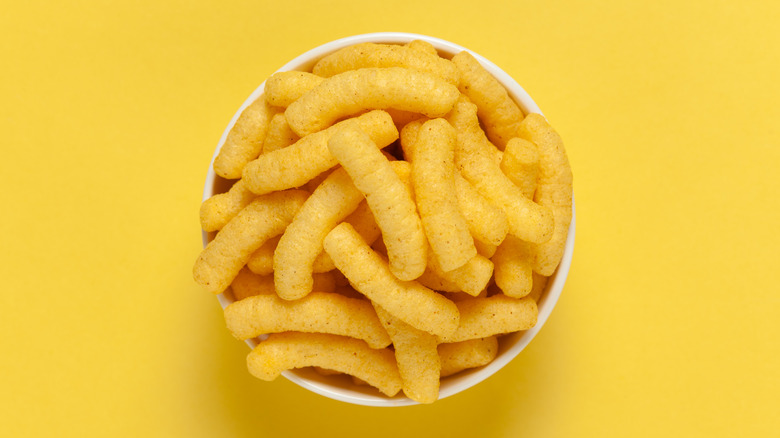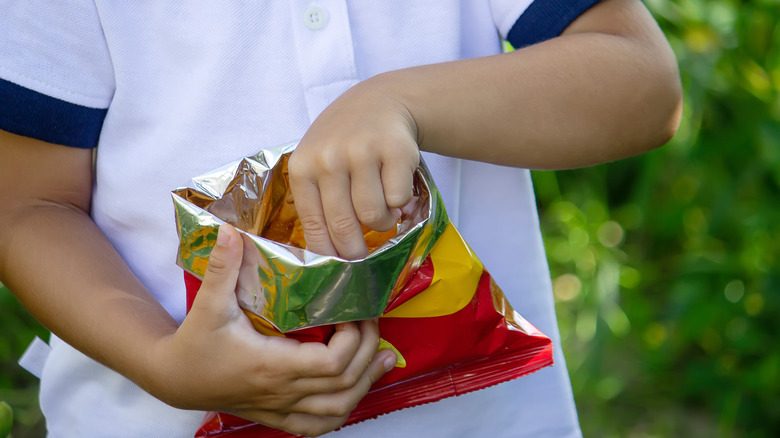Some Veggie Puffs Contain High Lead Levels, A New Report Finds
A new report has been released by consumer advocacy group Consumer Reports detailing the discovery of high levels of lead in certain veggie puff products. Veggie puffs are marketed as a popular way for parents to introduce vitamins and minerals into their children's diet, but some families may want to reconsider the benefits of these snacks over whole vegetables after this finding.
The report focused on three food manufacturers and two different types of flour. The Lesser Evil and Serenity Kids products all used cassava flour, while Once Upon A Farm products used sorghum flour. Although lead is a naturally occurring metal, it can cause serious health issues if consumed in excess. The early years of child development are a particularly risky time period for lead poisoning, which is why the maximum allowable dose level (MADL) is set at 0.5 micrograms per day.
All but one product tested had levels of lead which were lower than the MADL per serving. Lesser Evil's Intergalactic Voyager Veggie Blend had the highest concentration of lead at 112% the MADL in a single serving. With serving sizes that amount to a handful of crunchy snacks, children can easily consume several serving sizes in one sitting if left to their own devices. Put the two together, and you have a situation that needs addressing. Consumer Reports was deliberate in stating that its discovery was worthy of concern but not panic, pointing out that the recent recall of lead-laced applesauce packets involved much higher levels of lead.
High levels of lead in children's food is becoming a trend
The FDA was created in no small part to regulate our food supply to reduce the presence of harmful contaminants, and the organization has recently created the Closer to Zero program, which specifically targets children's food. To its credit, the program is relatively new, but the seemingly endless news of lead discoveries in children's food is an alarming trend for parents who are already operating in a confusing nutritional narrative.
The gluten scare that swept the nation over the past decade has led many parents to look for gluten-free alternatives, and cassava flour was a prime contender thanks to its nutritional value and texture. But unlike the applesauce pouches, which were suspected to be intentionally tainted with lead chromate by foreign food manufacturers, cassava's lead levels have more to do with the plant itself.
Cassava is a type of root, which puts the vegetable as close to the soil as you can get, which is exactly where lead is naturally found. As the plant absorbs nutrients from the soil, small amounts of lead are taken in. Like most plants, the cassava plant can't easily transport lead through its body once absorbed, meaning it will inevitably concentrate in the root. This type of lead is more difficult to regulate since it amounts to a natural byproduct of agriculture as opposed to an artificial additive. Even still, Consumer Reports recommends parents limit processed foods in favor of whole ingredients to lower their child's lead consumption.

